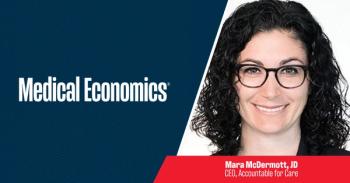
Hepatitis C epidemic hides within opioid use epidemic
An urgent call to action to treat combined epidemics
New epidemics of hepatitis C virus (HCV) and HIV infection have resulted from the epidemic of opioid use disorder (OUD), according to a new report.
The consequences of this infectious disease epidemic include increased hospitalizations for bacteremia, endocarditis, skin and soft tissue infections, and osteomyelitis.
“Medical settings that manage such infections offer a potential means of engaging people in treatment of OUD; however, few providers and hospitals treating such infections have the needed resources and capabilities. There is thus an urgent need to implement and scale up effective OUD treatment in health care settings to address the intersecting epidemics of OUD and its infectious disease consequences,” wrote the authors of the report, led by Sandra A. Springer, MD, of the Yale School of Medicine.
Optimal treatment of HCV and HIV is often impeded by untreated OUD. The result is long hospital stays, frequent readmissions due to lack of adherence to antibiotic regimens or reinfection, substantial morbidity, and a heavy financial toll on the health care system, the authors noted.
The authors published their
To address these intersecting epidemics, the U.S. Department of Health and Human Services (HHS) requested that the National Academies of Sciences, Engineering, and Medicine convene a workshop. Participants in the workshop held earlier this year in Washington, D.C., included infectious disease physicians, hospitalists, primary care providers, nurses, health policy experts, epidemiologists, law enforcement personnel, and staff from the HHS and the CDC.
The workshop discussions led to the development of five action steps:
Action Step 1: All those evaluated in medical settings for HCV or HIV infection, overdose, endocarditis, bacteremia, skin abscesses, and vertebral osteomyelitis should be screened for OUD with the Rapid Opioid Dependence Screen, which takes less than 5 minutes to administer. OUD screening should be a standard part of an infectious disease assessment.
Action Step 2: Patients who screen positive for OUD should immediately be prescribed effective medication for OUD and/or opioid withdrawal symptoms to prevent relapse.
Action Step 3: Hospitals should develop protocols to facilitate OUD treatment initiation and link patients to community-based treatment upon discharge. “Hospitals should partner with community-based programs and skilled-nursing facilities to provide seamless transitions in care for people with OUD and serious infections,” they wrote.
Action Step 4: Hospitals, medical schools, physician assistant schools, nursing schools, and residency programs should increase training to identify and treat OUD.
Action Step 5: Access to addiction care should be increased, as well as funding to states to provide effective medications to treat OUD. “The most direct way to improve access to OUD treatment is to expand access to Medicaid and other insurance and require that insurers cover FDA-approved treatments for OUD without cumbersome prior-authorization barriers,” they wrote.
“All healthcare providers have a role in combating the OUD epidemic and its infectious disease consequences,” the authors concluded. “Those who treat infectious complications of OUD are well-suited to screen for OUD and begin treatment with effective FDA-approved medications.”
Newsletter
Stay informed and empowered with Medical Economics enewsletter, delivering expert insights, financial strategies, practice management tips and technology trends — tailored for today’s physicians.



